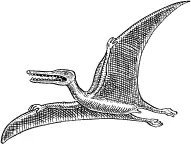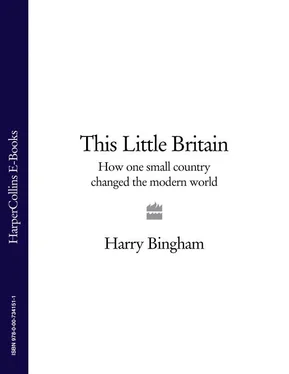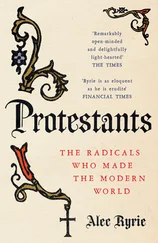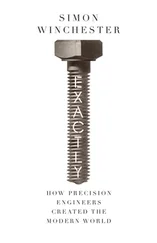All the problems so far mentioned fade into insignificance compared with the one identified by the A in Shaw’s potato.
Just as the Masters of Chancery were producing the first rational spelling system in English, something was going on to turn all their fine work on its head. This was the Great Vowel Shift, which did exactly what it said on the tin. Before the shift, English vowels had been much the same as their Continental neighbours. The word fine in English used to be pronounced with an ‘ee’ sound, like the Italian fino (‘fee-no’). If a fourteenth-century speaker of English had encountered a sentence like ‘ I see my goat is lame—my cow too ’, they’d have pronounced it approximately as: ‘Ee say mee gawt ays lahm—mee coo toe’
This sounds odd to us, but only because we’re not used to it. At least English used its vowels in more or less the way you’d expect given its ancestry. Then, for no known reason, the vowels decided to get up from their fixed positions and wander round till they settled again in new places. The Chaucerian ‘ee’ sound became the modern ‘eye’ sound, the Chaucerian ‘ay’ became the modern ‘ee’, and so on.
The process was both strange and not strange at the same time. In some ways, nothing much could be more ordinary. Language changes. If you want a scone , do you ask for a scohne or a sconn? If you talk about dust , do you use the southern ‘uh’ sound, or the shortened Yorkshire ‘oo’ sound? If a Brummie moves to a new part of the country—Liverpool, say, or Glasgow or Cornwall—they may well start to modify their vowel sounds, almost without noticing it. The Great Vowel Shift was in a way no odder than that—and bear in mind that it took place over two centuries, or the space of five or six medieval lifetimes.
On the other hand, the process is also a little odd. Why did English change so much and its closest neighbours little or not at all? And what propelled the movement? There is no shortage of theories. Social upheavals following the Black Death is one possibility. Another is that as the French-speaking ruling class came to speak English, there was a vogue for a kind of patriotic hypercorrection of French vowel sounds. But no one knows for sure. It’s just one of those things.
The one certainty, however, is that English spellings were fixed before, during and after the shift. A word like polite (around before the shift) simply saw its pronunciation change, from something like pol-eet to the modern pol-ite . But an almost identical word— police —which entered the language after the shift reflects the Continental ‘ee’ sound of its origin. The result, of course, is that there’s no way to tell in advance how a word should be spelled, or how a spelling should be spoken. Fine for those who grow up with the language; murder for those who have to learn it.
The first recorded reference to a pterodactyl is in Sir Charles Lyell’s Principles of Geology . In it, Lyell predicts, ‘The pterodactyle might flit again through umbrageous groves of tree-ferns.’ Whether pterodactyls could ever have been described as flitting is open to doubt, but what’s significant here is that new words have to be coined for new uses, and that one of the biggest creators of new words is science.

Scientists are only human. They want their coinages to have a bit of class—and what could be more classy than a bit of Latin or (still better) Greek? And since the ancient Greeks were fond of their initial Ps, our language is now adorned with pterodactyls and ptomaine and psychology and many others. The trouble with these introductions, of course, is that English tongues can’t really wrap themselves around such (to us) exotic constructions. So the pronunciation tends to be anglicized, while the spelling resolutely isn’t.
The final great complicating factor for English is highlighted by the final letter of Shaw’s potato. Bureau is a French word. It has entered English with its pronunciation and spelling more or less intact, but because the French match up vowel sounds and letter combinations differently from us, their words only serve to baffle and complicate our spellings.
That’s not the only problem that can arise, however. Sometimes a new word entered the language—for example, nation , another French borrowing—and English tongues weren’t able to wrap themselves around the foreign sounds. So the French pronunciation, roughly na-see-o(n) , becomes corrupted to the comfortable English nay-shun . Creations like this are hideously common. Do you want to guess how many ways there are to create the sh sound in English? You might play safe and say two or three. Or perhaps go wild and suggest five or six. The correct answer is in fact thirteen, as in shed, sure, issue, mansion, passion, ignition, suspicion, ocean, conscious, chaperone, schedule, pshaw and fuchsia .
Potato as in 
That’s now every letter of Shaw’s potato accounted for. Shaw himself so disliked the mess of spellings that he left money in his will for a prize to be awarded for the best new alphabet to take care of English spelling. The winner was a chap called Kingsley Read. As Read saw it, a big part of the problem with English spellings is that there are too few letters for the number of sounds they need to make. There are forty-eight distinct sounds in English, and only twenty-six letters to do their work. The letter A, for example, has at least four jobs to do: ay as in able, a as in at, ah as in alms and or as in all . If English is to be easy to spell, then there should be one sound to a letter, one letter to a sound. Read’s alphabet, the Shavian alphabet, is a rather beautiful creation. It looks like this:

(That’s the start of the Universal Declaration of Human Rights, in case you missed it.) Alas, however, no one ever used Read’s alphabet. No one ever used Quickscript, his later modification of it. No one has ever used Readspel, Read’s final attempt to get people on his side. And no one ever will.
In the end, weird spellings are only a problem if that’s how you choose to see them. Part of the beauty of English is that its history is visible for all to see. It’s a hybrid between Anglo-Saxon rootstock and Franco-Latinate blooms. It’s a magpie language, acquisitive and reckless. It’s a human language, strewn with errors and eccentricities. It’s a living language, with vowels and pronunciations that shift from age to age. That won’t ever change. The question really is, who’d want it to?
For English speakers, one of the most striking facts about learning other languages is how bloomin’ complicated they seem to be. A perfectly regular French verb has five different forms in its present tense alone. Adjectives have to vary depending on whether a noun is singular or plural, masculine or feminine. And French is easy. German has three genders, five cases. The Polish struggle with three genders and seven cases, and if that weren’t enough, their nouns, adjectives, numbers and pronouns all decline differently. Italian has fifty forms for each verb, ancient Greek more than three hundred, modern Turkish an eye-popping two million .
Читать дальше














